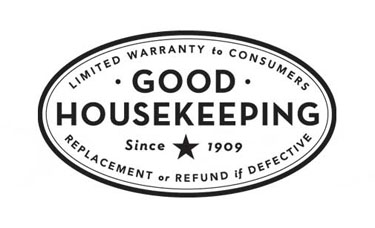
The Nieman Journalism Lab suggests we need a Good Housekeeping seal of approval for non-profit journalism.
This week saw studies from the Pew Research Center and the Society for New Communications Research documenting how the landscapes of both news-consumption by audiences and news-gathering by journalists are dramatically changing.
As iMediaEthics has written before, some of the new forms emerging–like partnerships between mainstream media and non-profit or other reporting operations–raise questions about how to maintain important ethical principles like fairness and independence.
In a Feb. 26 post at the Nieman Journalism lab, Jim Barnett suggests a concrete first step: establishing a “Good Housekeeping” seal of approval for these journalism partners.
Barnett asks, “Exactly where does journalism end and something else — call it spin, opinion, or advocacy — begin? Or to phrase the question as Chuck Lewis recently did for me: If a nonprofit says it’s doing journalism, what makes it legit?”
A set of standards is needed, he writes, to help answer these ethical questions. Especially with non-profit journalism outfits, who Barnett writes “have a special duty to be absolutely transparent.” He argues, “If they want to call their work journalism, the material they publish must be good enough to meet any test of professional standards that might reasonably be applied, from both the realms of journalism and of nonprofit management.”
For some examples, Barnett writes, we might be able to fall back on a more intuitive sense to gauge this journalism-ness–an “I know it when I see it” exercise. But this standard doesn’t always work. As StinkyJournalism discussed just this January, the Fiscal Times may have looked and quacked like journalism, but its funding structure raised some questions about whether the Washington Post should have relied on it to produce unbiased content.
As Barnett writes, a smell-test may not be sufficient when “It’s not clear that some new entrants are playing by the rules of journalism and nonprofit accountability. Or more accurately, it’s not clear that they want to.”
But Barnett says, making standards for non-profit journalism may be “easier said than done.” Standards for journalism itself aren’t contained in any one authoritative guide. “Are journalism nonprofits willing to live with the current mishmash of definitions of journalism put forth by entities as diverse as the Senate Press Gallery, the Pulitzer Committee, and perhaps the IRS?” Barnett asks.
Barnett lists some suggestions for these standards including,
— 501(c)3 or 501(c)4 status
— Case for philanthropy linked to editorial independence
— Functionally independent newsroom
— Journalism advisory board or ombudsman
— Adherence to SPJ Code of Ethics
As iMediaEthics knows, all the lists of journalism best practices in the world don’t keep journalists from violating ethical values. Neither would a set of standards for non-profit journalism partners. Barnett writes, “No list of criteria or standards can guarantee quality or take the place of professional responsibility.”
Still, he argues, it’s a start.
Check out his full post here.






Comments Terms and Conditions